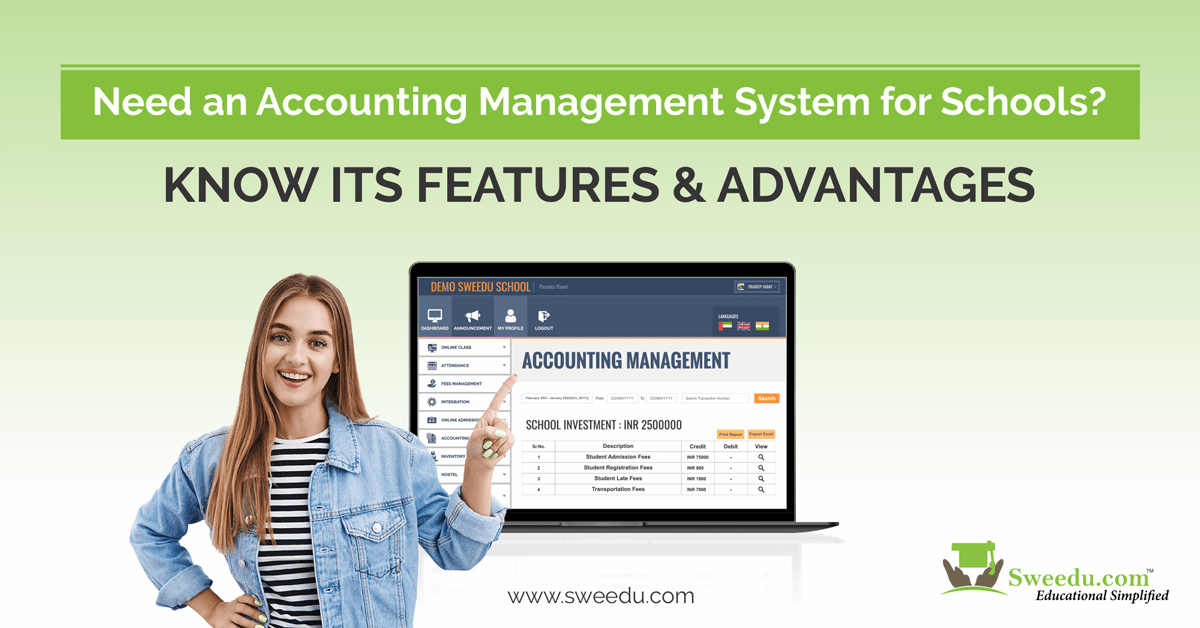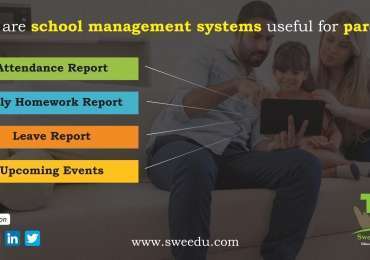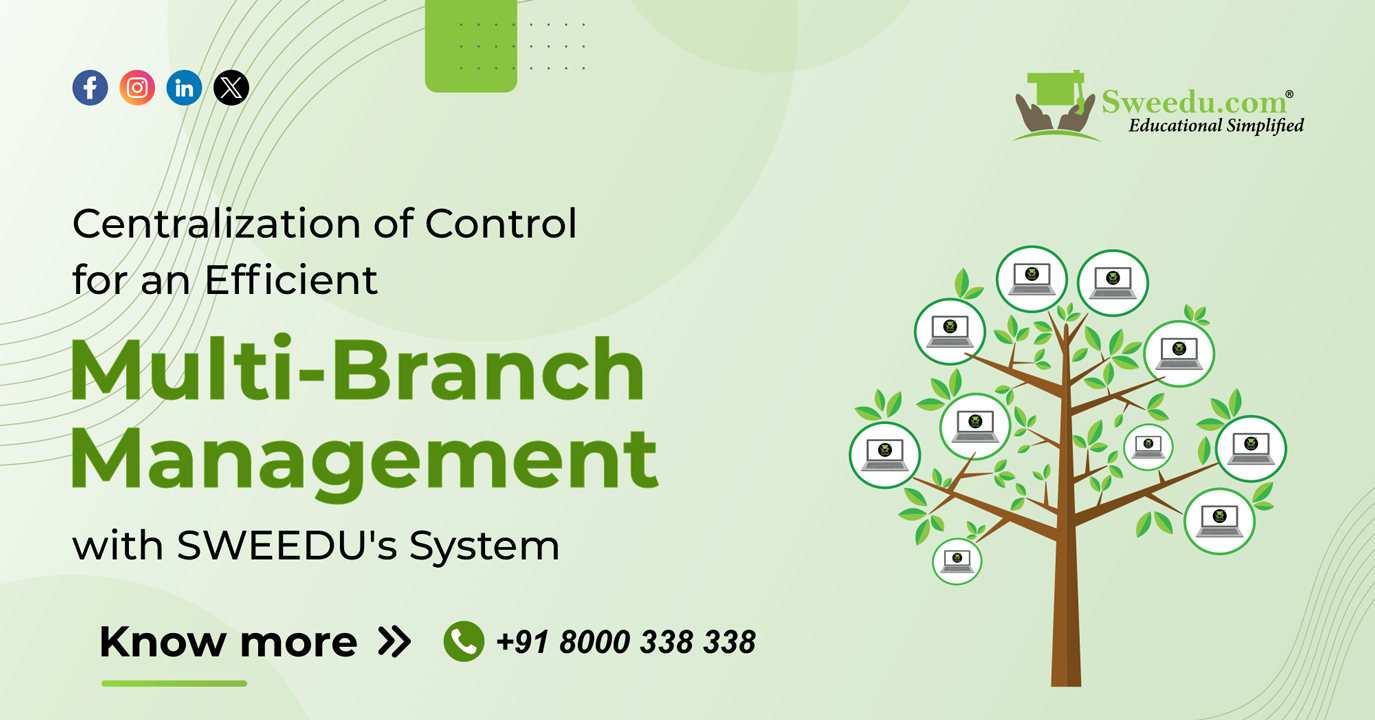
For an educational institution, account management is time-consuming. The bigger the school, the more complicated its financial accounts. Manually creating invoices, keeping physical records, and payment information is not an efficient way to perform these tasks.
With more schools adopting educational technologies like school management software, you should do it too. When you do, you can digitize your accounting processes, improve the flow of daily transactions and simplify data organization. By using an accounting management system, get access to useful features that help you finish your tasks quickly.
Features of Accounting Management System
Simplify management of your financial data with an accounting management system. Use this education ERP module to digitize tasks from your daily cycle and free up your time.
Manage Multiple Ledgers
The school accountant can create and manage multiple ledgers at the same time. Create individual ledgers and sub-ledgers for expenses, income, assets, and liabilities for neat organization.
When you create a ledger, assign it a type, add a sub-ledger and record data into them. With the use of ledgers, accountants can create an annual report for profits and losses for the school.
Get Remote Access
When you use a school management system, you get to remotely access the accounting management module anywhere, anytime. With cloud-based school management software, accountants can access tools and work on their daily tasks at their convenience.
View Multiple Reports
With an accounting system, create reports as per the school’s needs. Get reports about the school’s expenses, bank account, payments, ledger, collection, and security deposit.
The accountant has access to transaction history reports for gains and expenses from transportation, hostel, scholarship, donations, offline payments, and overall balance sheet.
Advantages of using an Accounting Management System
1. Save Time and Money
Daily accounting tasks like creating invoices, and tracking different transactions (expenses, fees, admissions) when done manually are very time-consuming. By digitizing these tasks save on time while giving your accountant more space to focus on other areas.
With an accounting system , the school doesn’t need to hire multiple accountants (one or two is enough based on the school’s size). This way, the school saves money, gets some breathing room in their budget for other expenses.
2. Improve Data Visibility
An accounting management system provides the school board, the principal, and the administrative staff with data access. This is helpful in evaluating the school’s financial position, making changes in the annual budget and deciding if any additional expenses need to be cut off.
With access to real-time financial data, the administration can communicate with other departments about their expenses without any confusion. This data is also useful while planning a school event, allowing them to increase or decrease its budget based on their progress.
3. Minimize Errors
Manual bookkeeping and accounting tasks take up a lot of storage space. It also increases the chances of losing a document or misplacing it. With an accounting management module, the accountant can record, store, and organize bulks of data securely in cloud storage..
This way all accounting information is stored safely, without the risk of losing or misplacing it. When needed, the information can be accessed, exported or shared with school members.
4. Connect with Other Modules
An accounting module is connected with other modules of school management software. This enables the accountant to keep track of expenses and profits from other management modules (such as inventory, fees, admissions, donations, hostel, and transport).
This kind of access is advantageous for scheduling bill payments, collections, and orders for the school. With universal sync across modules, you can send notification reminders for any exceeding expenses, questionable purchases, or upcoming collection dates.
5. Real-time Financial Data
Tracking your school’s daily expenses is an important task. Within school management software, get real-time transaction data from departments for information regarding the money being spent.
This is advantageous in managing daily expenses, working on ways to optimize expenses, and getting an insight into which department has the highest expenses.
6. Make Better Decisions
The accounting system provides the school’s administrators with real-time financial data and reports. Using these reports the school can make informed decisions about staffing, purchases, and reducing expenses.
Decisions like this are important to ensure that the school’s financial position is stable and that it can operate smoothly.
7. Increase Security
By using the accounting module, the school can make sure that all information regarding their finance remains protected in the cloud. This helps in preventing data leaks or hackers getting sensitive information.
The admin gets to decide who can access the school’s accounts and how much access they need. This is one way schools can protect sensitive financial information from being accessed without permission. Unlike manual bookkeeping, the accounting management system continuously backs up your data into the cloud, so the school won’t lose their data.
8. Become a Sustainable School
A school without accounting management module has to process information from daily tasks manually. As most accounting management tasks involve paper usage, manual processing creates a lot of paper wastage.
By completing accounting tasks online, the school saves paper, and contributes to the go green movement by becoming sustainable. Not to mention the amount of money schools save by becoming paperless.
FAQ’s
1. What is an accounting management system?
An accounting management system is a part of ERP Software, that records and tracks all financial transactions (expenses, income, profits).
2. What does an accounting system do?
An accounting system records all financial transactions for a business. It is used to create reports on different expenses to get an understanding of the business’s financial position.
3. What is the difference between bookkeeping and accounting?
Bookkeeping refers to recording financial transactions within a business. Accounting refers to interpreting, classifying, analyzing, and reporting the business’ financial transactions.
EndNote
If you’re still using traditional accounting methods for school management, you’re losing time and money. Switch to a digital accounting management module with school management software. Access these features within the accounting system to improve work efficiency.
-
- Manage Multiple Ledgers
- Remote Access
- View Multiple Reports
By using an accounting module, you get great advantages for your school. Here’s a recap of the advantages of using an accounting management system.
-
- Save Time and Money
- Improve Data Visibility
- Minimize Errors
- Connect with Other Modules
- Real-time Financial Data
- Make Better Decisions
- Increase Data Security
- Become a Sustainable School
If you want to switch to a digital accounting system, get Sweedu Education ERP Software today to start your free trial.
If you liked today’s blog, do like and share it with your friends, family, colleagues, and on social media. If you’re interested in learning more about school management software, go and check out our other blogs.
Using Education ERP Software allows the school to connect their different departments on one platform and allows for a smooth exchange. The accounting management system can be synced with different modules such as hostel, fees, admissions, transport, and inventory for data management.




